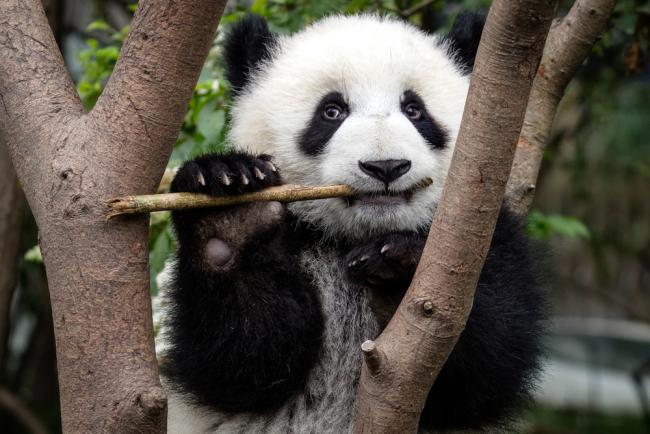Hello ladies and gents this is the Viking telling you that today we are talking about
PANDAS!
1. THEY HAVE GREAT CAMOUFLAGE FOR THEIR ENVIRONMENT
The giant panda's distinct black-and-white markings have two functions: camouflage and communication. Most of the panda - its face, neck, belly, rump - is white to help it hide in snowy habitats. The arms and legs are black, helping it to hide in shade.
2. THEIR EYES ARE DIFFERENT TO NORMAL BEARS
Like domestic cats, giant pandas have vertical slits for pupils.
3. CUBS ARE WELL PROTECTED IN THEIR FIRST MONTH
Mother pandas keep contact with their cub nearly 100% of the time during their first month - with the cub resting on her front and remaining covered by her paw, arm or head.
4. COURAGEOUS CUBS!
At 5 months old, giant pandas learn how to climb - sometimes practicing by climbing on their mum.
5. A HELPING HAND
They have an extended wrist bone that they use like a thumb to help them grip food.
And as always have a chilled day from the Viking

Comments
Post a Comment